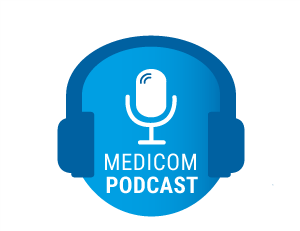Patients diagnosed with the neuroimmune disease PN, suffer from intense pruritus and pruritic papulonodules that negatively influences sleep and quality of life [1]. IL-31 is believed to play a major role in the pathogenesis of PN and is seen as a driver of the associated itch-scratch cycle [2].
The OLYMPIA 2 trial (NCT04501679) was designed to assess the IL-31 Receptor α antagonist nemolizumab for its potential in treating PN [3]. After a 2:1 randomisation, the 274 adult participants with PN were treated with either subcutaneous nemolizumab at a dosage of 30 mg (bodyweight <90 kg) or 60 mg (bodyweight ≥90 kg) every 4 weeks or placebo. The co-primary endpoints were defined as an at least 4-point improvement in the Peak Pruritus Numerical Rating Scale (PP-NRS) at week 16 and the percentage of participants with Investigator’s Global Assessment (IGA) success in terms of a score of 0/1 plus a ≥2-grade reduction at the same time point.
The participants had a mean age of 52.7 years, just over 60% were women, and 43% experienced severe itch on the average weekly PP-NRS. Prof. Shawn Kwatra (Johns Hopkins University School of Medicine, MD, USA) emphasised that 37.2% had a nodule count of >100.
Compared with baseline, 56.3% of participants on nemolizumab and 20.9% on placebo reached a ≥4-point PP-NRS amelioration (P<0.0001). Of note, significant differences were present as early as week 4. Furthermore, a greater proportion of IGA success was noted in the nemolizumab arm than in the placebo arm: 37.7% versus 11.0% (P<0.0001). The agent also led to a significant decrease in sleep disturbance of ≥4-point on the PP-NRS: 51.9% for nemolizumab versus 20.9% for placebo (P<0.0001).
Any kind of treatment-emergent events happened in 61.2% on nemolizumab and 52.7% on placebo, with a proportion of any serious events in 2.2% and 5.5%, respectively. Among the most common events (≥5%), headache and atopic dermatitis occurred more often in the nemolizumab group (6.6% vs 4.4% and 5.5% vs 0%). Worsening of prurigo (neurodermatits) however, happened more often in the placebo group (3.8% vs 11.0%).
All in all, the monotherapy with nemolizumab involved significant benefits in itch, lesions, and sleep impairments, while showing a consistent safety profile.
- Williams KA, et al. Expert Rev Clin Pharmacol. 2021;14:67–77.
- Tsoi LC, et al. J Allergy Clin Immunol. 2022;149:1329–39.
- Kwatra S. Nemolizumab monotherapy improves itch, skin lesions, and sleep disturbance in patients with prurigo nodularis: Results from a phase 3 trial (OLYMPIA 2). S025, AAD 2023 Annual Meeting, 17-21 March, New Orleans, USA.
Posted on


